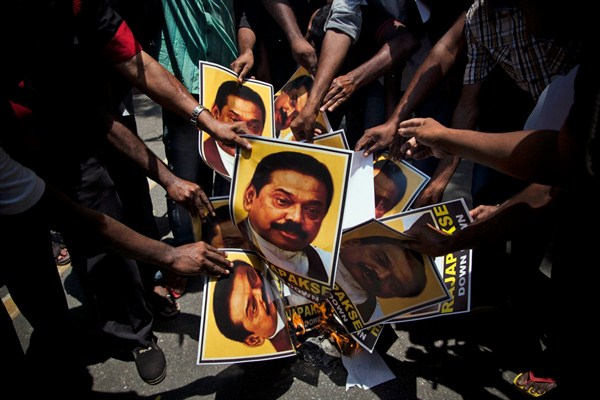In this week’s Trend Lines podcast, WPR’s editor-in-chief, Judah Grunstein, and managing editor, Frederick Deknatel, discuss the sudden escalation of Venezuela’s political crisis and the U.S. response to it. For the Report, Jonathan Gorvett talks with WPR’s senior editor, Robbie Corey-Boulet, about the roots of Sri Lanka’s recent constitutional crisis and why its resolution is likely to remain fragile and tenuous for the foreseeable future.
If you like what you hear on Trend Lines and what you’ve read on WPR, you can sign up for our free newsletter to get our uncompromising analysis delivered straight to your inbox. The newsletter offers a free preview article every day of the week, plus three more complimentary articles in our weekly roundup every Friday. Sign up here. Then subscribe.
Listen:
Download: MP3
Subscribe: iTunes | RSS | Spotify
Relevant Articles on WPR:
The Roots of Sri Lanka’s Political Crisis—and Why It May Not Be Over
Venezuela’s New Opposition Leader Launches a Bold Gambit to Unseat Maduro
Why Loose Talk of the U.S. Supporting a Military Coup in Venezuela Is So Dangerous
Why Britain’s Labour Party Is Locked Into a Broken Strategy on Brexit
Cuba Must Contend With a New Cold War in the Western Hemisphere
Trend Lines is produced and edited by Peter Dörrie, a freelance journalist and analyst focusing on security and resource politics in Africa. You can follow him on Twitter at @peterdoerrie.
To send feedback or questions, email us at podcast@worldpoliticsreview.com.

